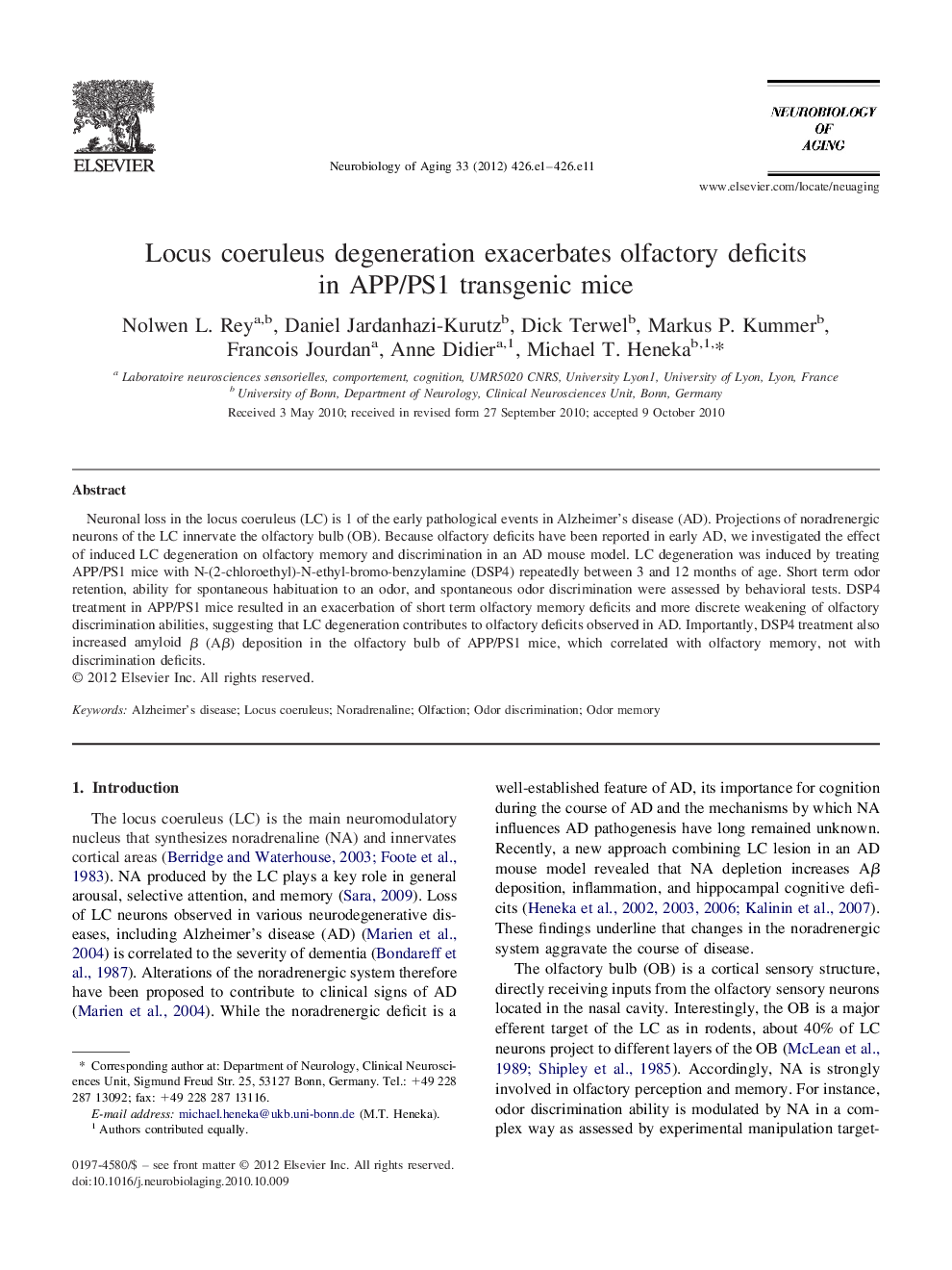| Article ID | Journal | Published Year | Pages | File Type |
|---|---|---|---|---|
| 6809927 | Neurobiology of Aging | 2012 | 11 Pages |
Abstract
Neuronal loss in the locus coeruleus (LC) is 1 of the early pathological events in Alzheimer's disease (AD). Projections of noradrenergic neurons of the LC innervate the olfactory bulb (OB). Because olfactory deficits have been reported in early AD, we investigated the effect of induced LC degeneration on olfactory memory and discrimination in an AD mouse model. LC degeneration was induced by treating APP/PS1 mice with N-(2-chloroethyl)-N-ethyl-bromo-benzylamine (DSP4) repeatedly between 3 and 12 months of age. Short term odor retention, ability for spontaneous habituation to an odor, and spontaneous odor discrimination were assessed by behavioral tests. DSP4 treatment in APP/PS1 mice resulted in an exacerbation of short term olfactory memory deficits and more discrete weakening of olfactory discrimination abilities, suggesting that LC degeneration contributes to olfactory deficits observed in AD. Importantly, DSP4 treatment also increased amyloid β (Aβ) deposition in the olfactory bulb of APP/PS1 mice, which correlated with olfactory memory, not with discrimination deficits.
Related Topics
Life Sciences
Biochemistry, Genetics and Molecular Biology
Ageing
Authors
Nolwen L. Rey, Daniel Jardanhazi-Kurutz, Dick Terwel, Markus P. Kummer, Francois Jourdan, Anne Didier, Michael T. Heneka,
